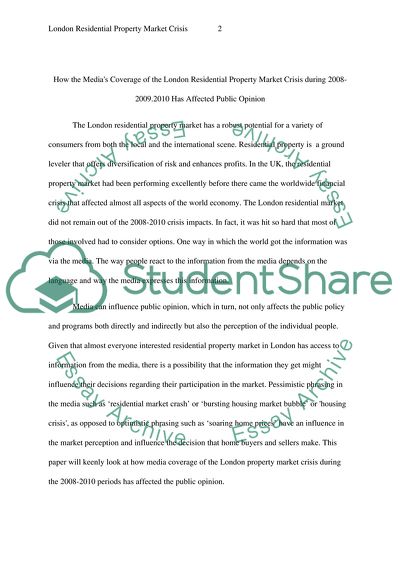Cite this document
(London Residential Property Market Crisis Article, n.d.)
London Residential Property Market Crisis Article. https://studentshare.org/macro-microeconomics/1772983-how-the-medias-coverage-of-the-london-residental-property-market-crisis-during-2008-20092010-has-affected-public-opinion
London Residential Property Market Crisis Article. https://studentshare.org/macro-microeconomics/1772983-how-the-medias-coverage-of-the-london-residental-property-market-crisis-during-2008-20092010-has-affected-public-opinion
(London Residential Property Market Crisis Article)
London Residential Property Market Crisis Article. https://studentshare.org/macro-microeconomics/1772983-how-the-medias-coverage-of-the-london-residental-property-market-crisis-during-2008-20092010-has-affected-public-opinion.
London Residential Property Market Crisis Article. https://studentshare.org/macro-microeconomics/1772983-how-the-medias-coverage-of-the-london-residental-property-market-crisis-during-2008-20092010-has-affected-public-opinion.
“London Residential Property Market Crisis Article”. https://studentshare.org/macro-microeconomics/1772983-how-the-medias-coverage-of-the-london-residental-property-market-crisis-during-2008-20092010-has-affected-public-opinion.


